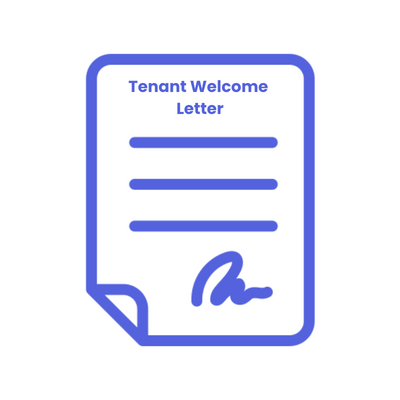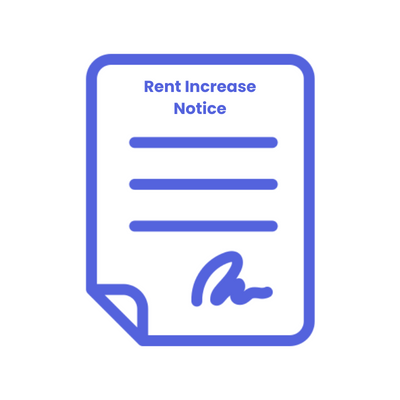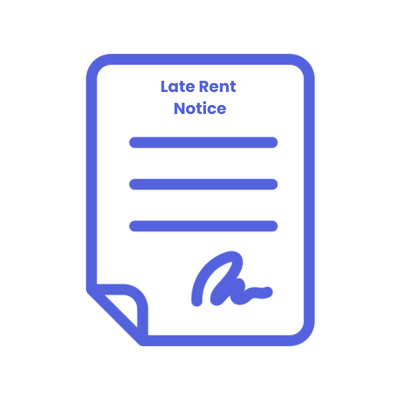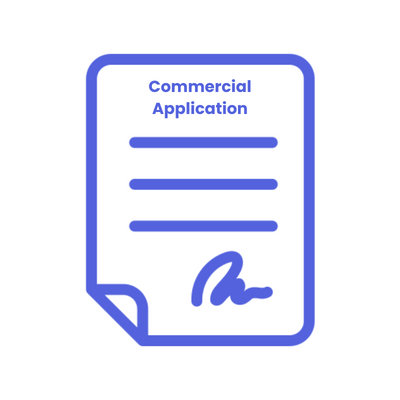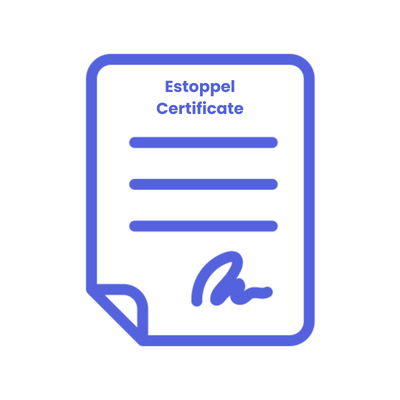Last Updated: April 2024

Commercial lease applications serve as the initial point of contact between prospective business tenants and property managers or landlords. These documents collect essential information, enabling property owners to assess a company’s suitability and financial stability for leasing a commercial space. Understanding the nuances of this application is key for ensuring a transparent and efficient leasing process.
We’ve reviewed commercial lease applications across the internet, so you don’t have to.
Top 5 Free Commercial Lease Application Templates
We’ve reviewed rental property commercial lease applications across the internet. Below is our comprehensive list of the best free commercial lease application templates for landlords and property managers, as well as our top pick.
RentalRealEstate Top Pick

RentalLeaseAgreements.com Commercial Application
Why We Like the RentalLeaseAgreements.com Commercial Application Template
The RentalLeaseAgreements.com application form sets a high benchmark and is our favorite pick by offering 2 options – simple and comprehensive (recommended).

LegalTemplates Commercial Application
Why We Like the LegalTemplates Commercial Application Template
The LegalTemplates application form showcases a thoughtful balance of simplicity and depth, catering to both seasoned and new businesses.
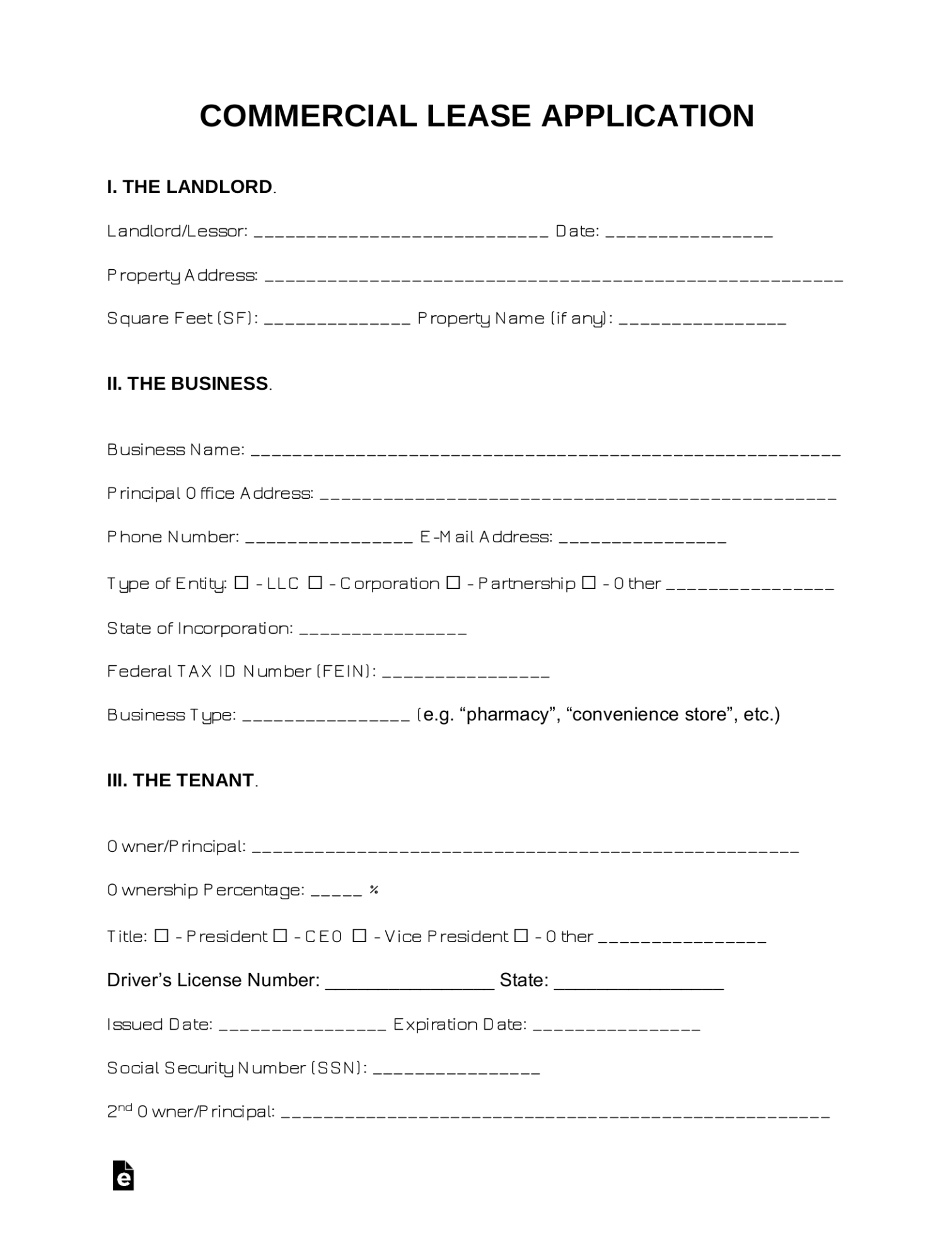
eForms Commercial Application
Why We Like the eForms Commercial Application Template
The eForms application form presents a streamlined design that efficiently captures essential business details.
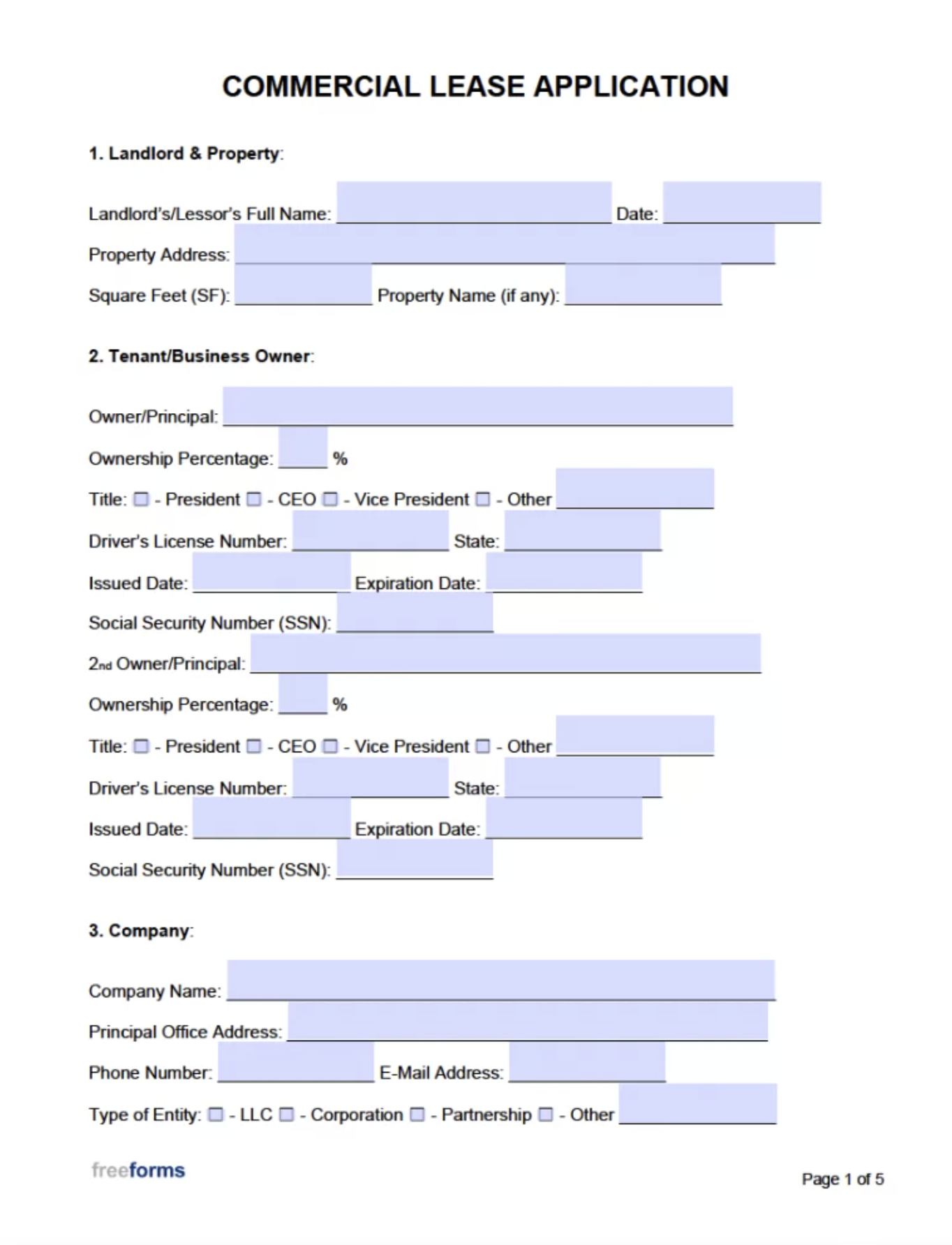
FreeForms Commercial Application
Why We Like the FreeForms Commercial Application Template
The FreeForms application form exemplifies a balance between simplicity and thorough data collection, making it a standout choice for landlords and property managers.
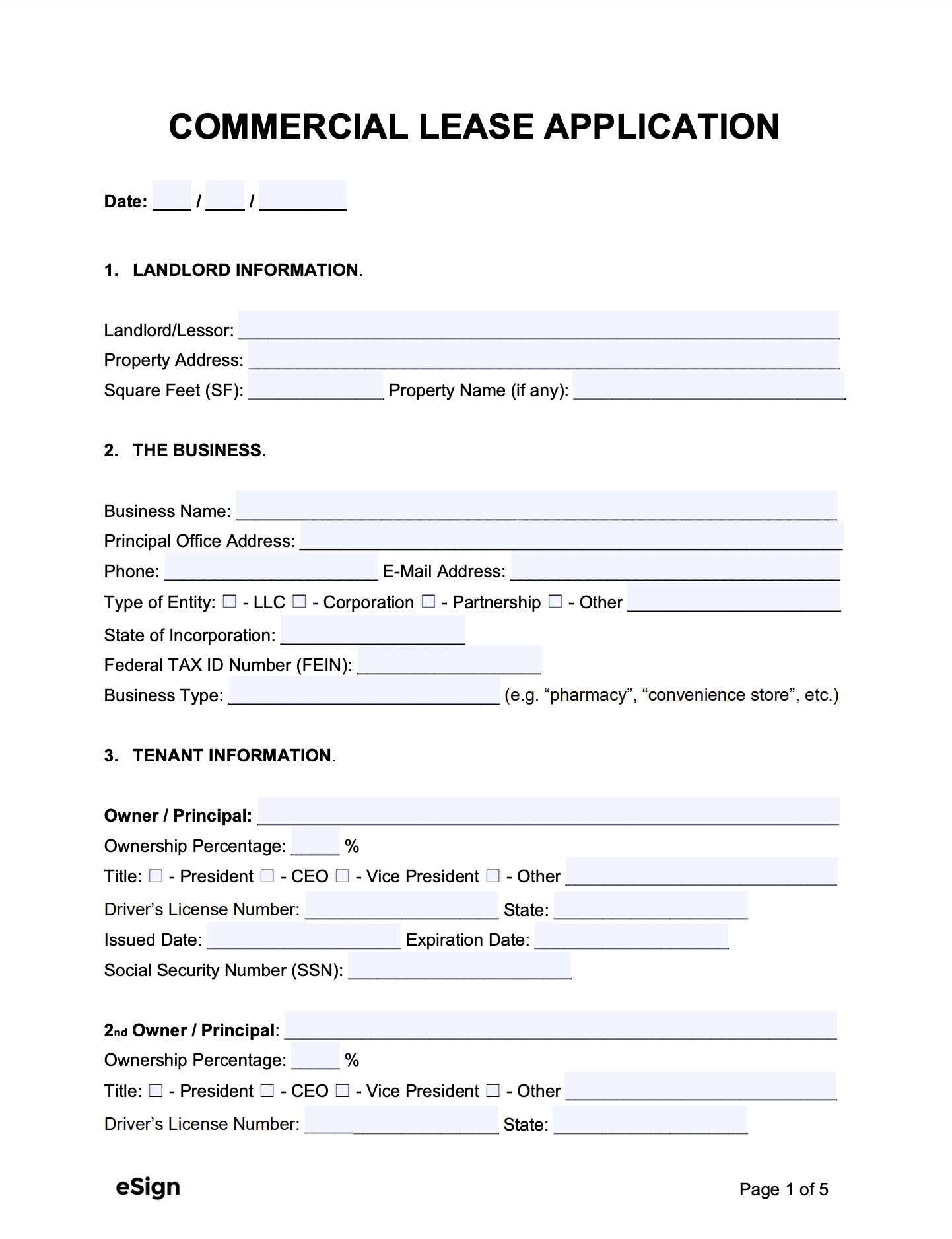
eSign Commercial Application
Why We Like the eSign Commercial Application Template
The eSign application form innovatively simplifies the application process, ensuring all essential data is captured without being overly tedious.
The #1 Rental Property Newsletter
Once a month, we send out an exclusive Rental Property Market Update with top stories, current mortgage rates, building products, and more. No spam and unsubscribe anytime.

What is a Commercial Lease Application?
Commercial Lease Application Definition
A commercial lease application is a standardized form that businesses complete when expressing interest in leasing a commercial rental property. This document collects vital information about the prospective tenant, including their business operations, financial health, and rental history. The collected data assists property owners or managers in assessing the business’s eligibility and fit for the desired commercial space.
Commercial Lease Applications Explained
Commercial lease applications are the first step for businesses wishing to secure a location for their operations. Unlike residential applications, these focus on the business’s financial viability, longevity, and reputation in the industry. The form typically requests company details, financial statements, business references, and past leasing history. In essence, these applications serve as a mutual vetting process, ensuring a compatible relationship between the commercial property and the business tenant.
Rental Property Commercial Lease Application FAQ
What Information Should be Included in a Commercial Lease Application?
A commercial lease application is designed to give property managers and landlords a comprehensive view of a business’s suitability as a tenant for a commercial space. This application delves into the financial stability, operational history, and intentions of the business. By providing an array of essential details, it enables property owners to make informed decisions, ensuring they select tenants that align with their property’s requirements and ethos.
- Business Details: This section captures the full name of the business, type/nature of the business, years in operation, and its official contact details.
- Business Ownership Information: Details about the business owners, partners, or major stakeholders should be included, offering insights into the people behind the business.
- Financial Information: A summary of the business’s financial health, including recent financial statements, credit history, and bank references, helps assess the tenant’s ability to meet lease obligations.
- Previous Leasing History: Past rental experiences, references from former landlords, and reasons for moving provide a rental track record for the business.
- Proposed Use of Space: Clearly stating the intended use of the rented space ensures alignment with zoning regulations and the landlord’s preferences.
- Guarantor or Co-signer Details: If applicable, information about any individual or entity that will vouch for the business’s financial responsibilities should be listed.
- Requested Lease Duration: Specifying the desired lease term, whether short-term or long-term, aids in negotiations and arrangements.
- Insurance Information: Details about the business’s current insurance policies can reassure landlords about potential liabilities.
- Additional Requirements: Any specific needs, such as modifications or installations in the leased space, can be listed here for clarity and future negotiations.
How Do Commercial Lease Applications Differ from Residential Lease Applications?
A commercial lease application primarily focuses on assessing the financial stability and operational history of a business seeking to rent a commercial space. In contrast, a residential lease application evaluates the personal financial standing and rental history of an individual or family seeking a living space. While commercial applications may delve into business plans, references from past landlords of commercial spaces, and company financial statements, residential applications tend to require personal references, credit scores, and employment verification. Essentially, the former is designed to understand a business entity’s viability as a tenant, while the latter emphasizes the individual’s reliability.
What Information Do Landlords Look for in a Commercial Lease Application?
When performing commercial tenant screening, landlords and property managers are keenly interested in a business’s financial health, ensuring its capability to meet lease obligations consistently. They evaluate the business’s credit history, recent financial statements, and bank references to understand its economic stability. Additionally, information about the nature of the business, its operational history, and previous leasing experiences can provide insights into the prospective tenant’s reliability and compatibility with the property. Landlords also consider the intended use of the commercial space to ensure it aligns with zoning laws and the property’s intended purpose.
Lease Application Tools
Tenant
Screening
Software

Using a tenant screening software to process residential lease applications is an efficient and popular tool to qualify potential applicants during the screening process of filling a vacant unit.
Commercial Management Software

Commercial property management software helps property owners and managers handle all aspects of management such as rent payment, maintenance, marketing, and more.
Contract & Document Software

Online rental property document software offers customizable templates and digital management solutions for forms, contracts, and letters related to leasing and property management.
Search Rental Real Estate
Try searching out site for hundreds of rental property topics ranging from property management, investor tool reviews, investment research, and more.
More Rental Property Notices & Letters
Rental Property Law Guides
About the Author

Ryan Nelson
I’m an investor, real estate developer, and property manager with hands-on experience in all types of real estate from single family homes up to hundreds of thousands of square feet of commercial real estate. RentalRealEstate is my mission to create the ultimate real estate investor platform for expert resources, reviews and tools. Learn more about my story.
Disclaimer: The information provided on this website does not, and is not intended to, constitute financial and/or legal advice. As such, all information, content, and materials available on this site are for general informational purposes only. See Our Disclaimer Page for more information.

